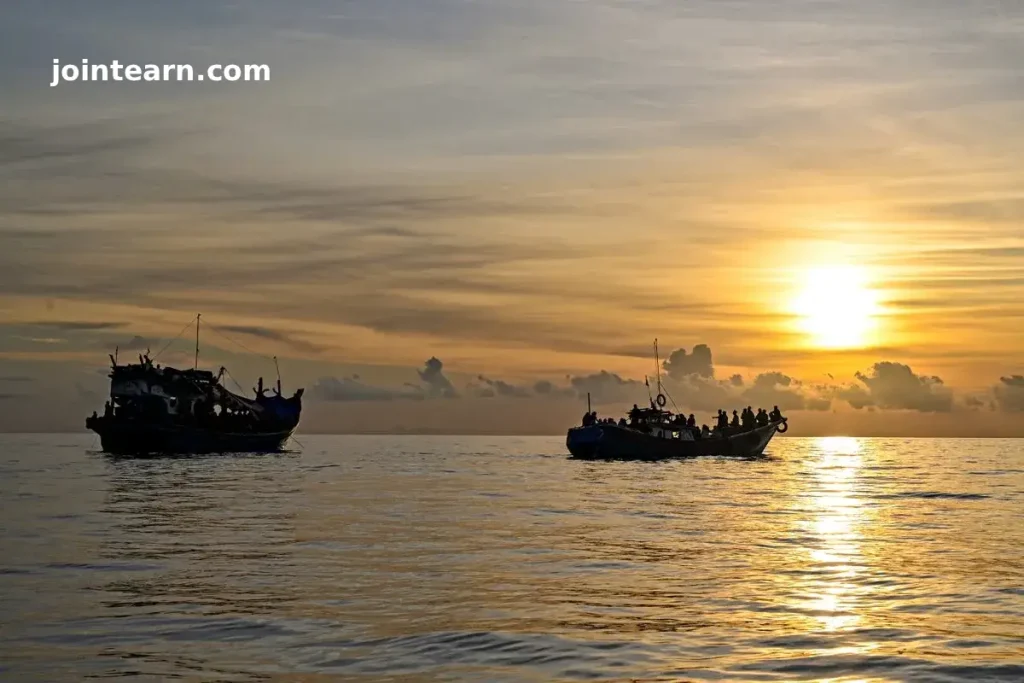
At least 300 migrants from Myanmar were aboard a boat that capsized in the Indian Ocean near the Thailand-Malaysia maritime border, leaving one confirmed dead, 10 rescued, and hundreds missing, authorities reported Sunday. The incident highlights ongoing risks faced by migrants fleeing persecution and attempting perilous sea routes in Southeast Asia.
Rescue Efforts and Survivors
The Malaysian Maritime Enforcement Agency (MMEA) launched a search-and-rescue operation after survivors were found drifting near the northern resort island of Langkawi. Among the rescued were:
- Three men from Myanmar
- Two Rohingya men
- One Bangladeshi man
The body of a Rohingya woman was recovered, while the status of dozens of other passengers remains unknown. First Adm. Romli Mustafa, director of the maritime authority for northern Malaysian states of Kedah and Perlis, said:
“More victims might still be found at sea, some three days after the vessel sank.”
Background and Migrant Route
The vessel departed from Buthidaung, in Rakhine State, Myanmar, a region long associated with persecution of the Rohingya minority, who are denied citizenship and face systematic abuse. Reports indicate that as the boat approached the border, passengers were instructed to transfer onto three smaller boats, each carrying roughly 100 people, to avoid detection by authorities. The whereabouts of the other two boats are currently unknown.
The Rohingya are a primarily Muslim ethnic minority in predominantly Buddhist Myanmar. Historically, Malaysia has been a favored destination for Rohingya migrants due to its majority Malay Muslim population, though authorities have attempted to limit the influx over fears of mass arrivals.
Humanitarian and Regional Implications
This latest maritime tragedy underscores the ongoing refugee crisis in Southeast Asia. It comes amid broader regional challenges with human trafficking syndicates exploiting migrants using dangerous sea routes. Malaysia currently hosts approximately 117,670 registered Rohingya refugees, representing nearly 60% of its total refugee population, according to UNHCR data.
Authorities are continuing search operations while issuing warnings about the dangers of illegal crossings. Humanitarian organizations are calling for increased regional cooperation to prevent further loss of life and improve safety for vulnerable migrant populations.


Leave a Reply